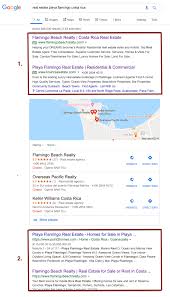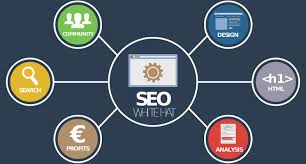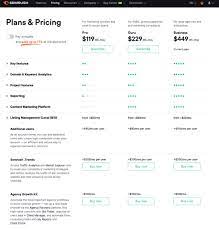The Difference Between SEO and SEA
Search Engine Optimization (SEO) and Search Engine Advertising (SEA) are two essential components of digital marketing that help businesses improve their online visibility and drive traffic to their websites. While both aim to increase a website’s visibility in search engine results, they differ in their approach and execution.
SEO: Search Engine Optimization
SEO is the process of optimizing a website to improve its organic (unpaid) search engine rankings. This involves optimizing various elements of a website, such as content, meta tags, images, and site structure, to make it more relevant and authoritative in the eyes of search engines like Google.
Key aspects of SEO include keyword research, on-page optimization, link building, and technical optimization. By implementing SEO best practices, businesses can improve their website’s ranking in organic search results and attract more targeted traffic over time.
SEA: Search Engine Advertising
SEA, on the other hand, involves paid advertisements that appear at the top or bottom of search engine results pages. These ads are typically marked as “sponsored” or “ad” and are displayed based on the keywords users enter in the search query.
With SEA, businesses bid on specific keywords relevant to their products or services. When a user searches for those keywords, the ads are triggered to appear. The advertiser pays a fee each time a user clicks on the ad (pay-per-click model), hence the term pay-per-click (PPC) advertising.
The Key Differences
- Nature: SEO focuses on improving organic search rankings through optimization efforts, while SEA involves paid advertising placements.
- Traffic: SEO drives organic traffic over time through improved rankings, while SEA delivers immediate traffic through paid ads.
- Cost: SEO is a long-term investment with ongoing maintenance costs, while SEA requires a budget for ad spend.
- Control: With SEO, businesses have less control over when their website appears in search results compared to SEA where they can target specific keywords and audiences.
In conclusion, both SEO and SEA play crucial roles in enhancing a business’s online presence. While SEO provides sustainable long-term benefits by improving organic visibility, SEA offers immediate results through targeted advertising. A well-rounded digital marketing strategy often combines both approaches to maximize reach and effectiveness in driving traffic and conversions.
Understanding SEO and SEA: Key FAQs for Boosting Online Visibility and Traffic
- What is SEO and how does it work?
- What is SEA and how does it differ from SEO?
- Why is SEO important for my website?
- How can I improve my website’s SEO ranking?
- What are the benefits of using SEA for online advertising?
- Is SEO or SEA more effective in driving website traffic?
- How can I measure the success of my SEO and SEA campaigns?
What is SEO and how does it work?
Search Engine Optimization (SEO) is a fundamental aspect of digital marketing that focuses on improving a website’s visibility in organic search engine results. SEO works by optimizing various elements of a website, such as content, meta tags, keywords, and backlinks, to make it more relevant and authoritative in the eyes of search engines like Google. By implementing SEO best practices, businesses can enhance their website’s ranking for specific keywords and attract more targeted organic traffic. SEO involves both on-page and off-page optimization strategies to ensure that a website is easily discoverable by search engines and provides valuable content to users searching for relevant information or products/services.
What is SEA and how does it differ from SEO?
“Many individuals often inquire about the distinction between Search Engine Advertising (SEA) and Search Engine Optimization (SEO). SEA involves paid advertisements displayed on search engine results pages, where businesses bid on keywords to have their ads shown to users. In contrast, SEO focuses on optimizing a website’s content and structure to improve organic search rankings without paying for placement. While SEA delivers immediate traffic through paid ads, SEO offers long-term benefits by enhancing a website’s visibility in organic search results over time.”
Why is SEO important for my website?
Understanding the importance of SEO for your website is crucial in today’s digital landscape. SEO plays a vital role in enhancing your website’s visibility and ranking in search engine results, making it easier for potential customers to find you online. By optimizing your website with relevant keywords, high-quality content, and user-friendly design, you can attract organic traffic and increase your online presence. Additionally, investing in SEO helps build credibility and trust with both search engines and users, ultimately leading to improved brand awareness, higher conversion rates, and long-term sustainable growth for your business.
How can I improve my website’s SEO ranking?
One frequently asked question in the realm of SEO and SEA is, “How can I improve my website’s SEO ranking?” Improving your website’s SEO ranking involves a combination of strategic efforts, including optimizing your website’s content with relevant keywords, improving site speed and user experience, building high-quality backlinks, and ensuring proper technical optimization. Regularly updating your content, focusing on mobile optimization, and monitoring analytics to track performance are also key factors in boosting your website’s SEO ranking. By implementing these best practices consistently and staying up-to-date with search engine algorithms, you can enhance your website’s visibility and attract more organic traffic over time.
What are the benefits of using SEA for online advertising?
When it comes to online advertising, utilizing Search Engine Advertising (SEA) offers a multitude of benefits for businesses looking to enhance their digital presence. One of the key advantages of using SEA is the ability to achieve immediate visibility and reach a highly targeted audience based on specific keywords. SEA allows businesses to control their ad placements, budget, and targeting parameters, ensuring that their ads are displayed to users actively searching for relevant products or services. Additionally, the pay-per-click (PPC) model of SEA means that businesses only pay when a user clicks on their ad, providing a cost-effective way to drive traffic and generate leads. Overall, leveraging SEA as part of an online advertising strategy can result in increased brand exposure, higher website traffic, and improved conversion rates.
Is SEO or SEA more effective in driving website traffic?
The frequently asked question of whether SEO or SEA is more effective in driving website traffic is a common dilemma for businesses seeking to enhance their online presence. The effectiveness of SEO and SEA in driving website traffic depends on various factors, including the business goals, budget, timeline, and target audience. SEO offers sustainable long-term benefits by improving organic search rankings and attracting relevant traffic over time. On the other hand, SEA provides immediate results through paid advertising placements that can generate instant traffic. Ultimately, a well-rounded digital marketing strategy that combines both SEO and SEA elements is often the most effective approach to maximize website traffic and achieve optimal results.
How can I measure the success of my SEO and SEA campaigns?
Measuring the success of SEO and SEA campaigns is essential to understanding their impact and optimizing future strategies. For SEO campaigns, key metrics to track include organic traffic, keyword rankings, backlink quality, and on-page engagement metrics like bounce rate and time on site. Tools like Google Analytics and Search Console can provide valuable insights into website performance and user behavior. On the other hand, measuring the success of SEA campaigns involves monitoring metrics such as click-through rate (CTR), conversion rate, cost per click (CPC), and return on ad spend (ROAS). By analyzing these metrics regularly and adjusting strategies based on performance data, businesses can effectively evaluate the success of their SEO and SEA efforts and make informed decisions to drive better results.





